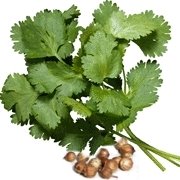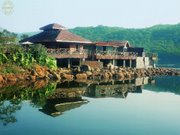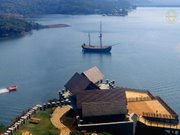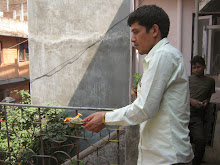“My English teacher thought he could get me into RADA but it worked out that I became a statistician”: An interview with Sir Adrian Smith
Features
- Author: Statistics Views
- Date: 16 Apr 2014
- Copyright: Photograph appears courtesy of Sir Adrian Smith
Sir Adrian Smith is a world-renowned British statistician. He studied mathematics at Selwyn College, Cambridge and statistics at University College London.
He is the former Head of the Department
of Mathematics at Imperial College London. He served on the Advisory
Council for the Office for National Statistics from 1996–1998, was
Statistical Advisor to the Nuclear Waste Inspectorate from 1991–1998 and
was advisor on Operational Analysis to the Ministry of Defence from
1982–1987. He was Principal of Queen Mary, University of London, from
1998-2008; Director General of Knowledge and Innovation in the
Department of Business, Innovation and Skills until 2012; and is now
Vice-Chancellor of the University of London. He is a former President of
the Royal Statistical Society and is currently a Deputy Chair of the UK
Statistics Authority.
He is best known for his work in
statistical theory, in particular Bayesian statistics and evidence-based
practice. When I interviewed the late Professor Dennis Lindley last
year, he called Sir Adrian “the brightest student I’ve ever had.” With
Antonio Machi, Smith translated Bruno de Finetti's Theory of Probability
into English. He wrote an influential paper in 1990 along with Alan E.
Gelfand, which drew attention to the significance of the Gibbs sampler
technique for Bayesian numerical integration problems. He was knighted
in the 2011 New Year Honours.
Statistics Views talks to Sir Adrian
about his career in statistics, his memories of the late Professor
Lindley, teaching statistics, working on the Smith Report on secondary
mathematics education in the UK, the challenges statisticians face, Big
Data and how his life may have turned out very differently if he had not
chosen statistics.
Video Interview Part I - where
Smith talks about the origins of his career, working with the late
Professor Dennis Lindley and the Smith Report
Further questions
1) You have an extremely
impressive career path including serving on the Advisory Committee to
the UK Government Office for National Statistics from 1996-1998, working
for the UK Government Department of the Environment from 1991-1998 as a
Statistical Advisor to the Nuclear Waste Inspectorate and for the
Ministry of Defence from 1982 to 1987 as adviser on Operational
Analysis. What are your memories when you look back on these roles in
service to statistics and what do you feel were your main achievements?
In most of those cases, I was invited to
join in because I was seen as a statistician and where there were issues
on data policy to which I could contribute. I liked that part of my
life a great deal. There was a kind of joy to be able to poke one’s
fingers into worlds that are not your own, such as burying nuclear
waste, which is not something I come across every day. The issues around
that – the risks, quantifying the uncertainties – was bread and butter
in terms of how I think. What one was doing in each of those areas was
utilising the toolkit of thought about uncertainty – communicating and
quantifying uncertainty, whether it was burying nuclear waste or
considering investments in military equipment – at the heart of all
these things were complex systems of uncertainty, so I felt that I was
able to contribute.
The challenge really is what is the kind of training and what is the positioning of statistics in its own right as a profession that will continue to be relevant, needed and respected?
I’m still quite lucky now that I have a
one-day-a-week role as Deputy Chair of the UK Statistics Authority and
within that, I chair the Board that oversees the Office for National
Statistics – in particular, the controversies about how you do price
indices, RPIs, CPIs, how you measure migration, etc. – I am rather
privileged to have a sort of front seat in joining in on those policies
and debates and ensuring that the statistical evidence base is as good
as it can be.
2) Do you think over the years
too much research has focussed on less important areas of statistics?
Should the gap between research and applications be reduced? How so and
by whom?
What is important research and how you
prioritise research is an incredibly interesting area. I spent four
years of my life overseeing policies and budgets for how you fund
research in the UK. You have a real dilemma and it is neither one thing
nor the other – why would governments on behalf of taxpayers spend a lot
of money on research if it were not to solve economic, societal or
health challenges that contribute to one’s wellbeing? However, the
timescale on which solving problems actually leads to positive outcomes
in society can be very unpredictable and can only turn out to be very
important decades later. So you cannot say “we will do the research and
provide you with a solution in three weeks’ time” – it just does not
work that way. On the other hand, if all research was not going to yield
any outcomes for hundreds of years, the next three or four generations
of taxpayers may well think they did not have a very good deal. For me,
as an individual researcher and considering the way in which the public
approaches topics such as investigative research, there has to be some
kind of balance. You have to identify the problems we would really like
to solve, such as finding a cure for cancer, for which you can perfectly
articulate the case for investment, but it would be completely mad to
say that you will find the cure in such and such a period of time.
What you really have to try to ensure is
the brightest and the best people having a kind of sense about where the
interesting problems are and letting them get on with it. Not everyone
can do it – you have to have a substantial portfolio to deliver what you
want – and that suited me as an individual. I could be a pure academic
in the morning and an applied academic in the afternoon. In retrospect,
it will always be the case that huge percentages of research lead
nowhere but mainly, you don’t know that until afterwards. It is not easy
upfront, and indeed there will also always be grant applications for
research that you can put aside straight away with a clear conscience
knowing that it would be a waste of time.
Video Interview Part II -
where Sir Adrian discusses Big Data, the challenges that statisticians
face, the best book he has read on statistics and more
3) What do you see as the greatest challenges facing the profession of statisticians in the coming years?
It touches on this issue of Big Data and
data science as a more general area. The challenge really is what is the
kind of training and what is the positioning of statistics in its own
right as a profession that will continue to be relevant, needed and
respected? Over the years, in areas such as clinical medicine,
statistics has established a key position for itself. The world we are
now in where we have huge DNA sequencing and you have millions of pieces
of data which if you can mine in the right way, could give you major
improvements. Are the key methodological issues of the past still
relevant in a world of Big Data? The challenge is for societies such as
the RSS to consistently review how the world is changing around them and
what we need to do both to be relevant but also, given the expertise
and knowledge that statisticians have, how to make sure that is not
lost.
4) Are there people or events
that have been influential in your career? Also, given that you are one
of the most well respected statisticians of your generation and many
statisticians look up to you, whose work do you admire (it can be
someone working now, or someone whose work you admired greatly earlier
on in your career?).
When I started in the world of Bayesian
statistics and wanted to become a researcher, I would have to say the
big thing that influenced me, not least because it took about a year my
life (and completely wiped out my social life!) was translating the work
of Bruno de Finetti. He had set himself a huge enterprise really which
was an all-encompassing view from a particular standpoint of probability
in all its ramifications – mathematical, philosophical, and so on. I
admired the scale of that seminal contribution and of course looking
back, there wasn’t a subject domain and it had to be forged. People like
Jimmie Savage and Dennis Lindley who pioneered the thinking and back
before them, de Finetti and Ramsay –those courageous first steps where
people do seminal things is something I have always admired.
5) If you had not got involved in
the field of statistics, what do you think you would have done? (Is
there another field that you could have seen yourself making an impact
on?)
When I was at school and deciding where
to apply for university, it was at a time post-Cold War when
universities were creating for the first time, Departments of Russian.
Now when I was applying to Cambridge to study mathematics, I was at a
very small country grammar school which was not very well versed on the
application procedure, so I did not find out until very late in the day
that I had to have studied what is called an inflected language and I
had not studied Latin or Greek. So I had to pick something and I picked
Russian, which I learnt in two to three months in order to obtain an
O-level in order to get into Cambridge. So having done that, I could
have gone somewhere to study Russian further. There was an English
teacher at my school who’d been trained in Russian immediately after the
Second World War and had worked in Germany. He suggested I should study
Russian and be amongst the first in a generation to go into Russia.
I was almost certainly a very bad amateur
actor and enjoyed acting in plays directed by another of the English
teachers at my grammar school who had been a coach at RADA. He said that
he thought that he could get me into RADA if I wanted to. So therefore I
could have been a foreign office spook or a failed actor but it worked
out that I became a statistician in the end.
















No comments:
Post a Comment